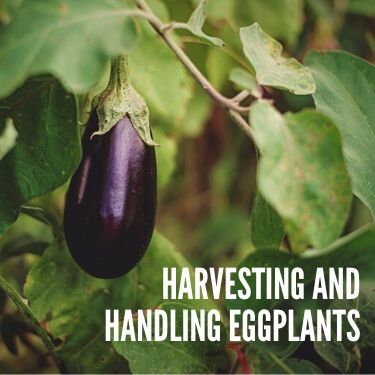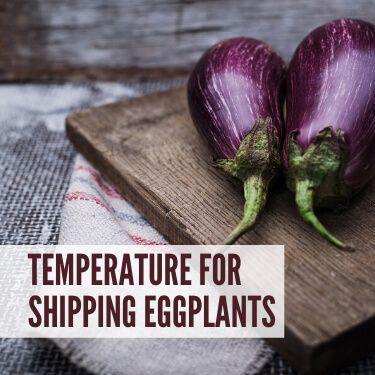The transportation of eggplants is often a little more complex than most people expect. While it’s true that all produce is fragile, eggplant is especially vulnerable to damage thanks to its delicate nature. It is important to keep the eggplants at the right temperature and to ensure that they don’t get injured during transportation. As with other forms of fresh produce, this can be quite common. You also need to think about the costs of transporting eggplants too. It’s important that you find a solution that matches your specific business budget.
Eggplants are transported in temperature controlled vehicles, typically between 50° and 54°F. The season in which the eggplants are being shipped and the variety of eggplants will affect the shipping temperature. Due to the fragile composition of eggplant, it’s important to densely pack them to limit movement and bruising.
In this article, we’ll provide all the information you need about how eggplants are transported and the key factors that you need to consider.
If you’re wondering where eggplants come from, you could be in for quite a shock. The vast majority of eggplants grown in the U.S come from one place and that’s New Jersey. Specifically, the main farms growing eggplants are located in South Jersey. It’s not just the U.S either. These products can be shipped across the country. Some of the main locations in New Jersey include:
Most of the production is for wholesale shipment with the majority being sent to Canada and the U.S. However, this does depend on the time of year. One of the other biggest sources of eggplants in the U.S. is California. This provides both the east and west coast with a reliable source of the popular purple plant.

Before you ask how eggplant is transported, you need to make sure that you are aware of the harvesting and handling of this product. Due to being fragile, they must be handled carefully and require cooling immediately after the harvest.
This is the typical process that needs to be followed
During handling, eggplants will be marked on a range of different standards. They will usually have a uniform egg to a globular shape and be quite firm. The skin should be a dark purple shade. In some cases, the fruit may be wrapped in plastic during storage. A key benefit of this is that it reduces the weight loss when it is time for the product to be packed while keeping the fruit safe from injury. Weight loss can occur during transportation due to a particularly high PH.
There are a few factors to keep in mind when you are packaging your eggplants. Typically, eggplants will be wrapped in paper when they are packed. They will also be stored in a container and will be described based on the condition. It is important that you do not pack the eggplants too tightly as damage can occur from contact. However, they still need to be packed tightly enough that there is no movement during transportation. This will also result in injury, particularly if it is a long journey to the destination.

There are a lot of different variables that you need to consider when you explore how eggplant is transported. One of the most important is temperature. Here are are some of the key considerations to keep in mind:
It is clear then that there are highly specific temperature requirements for this particular product. If you get the temperature wrong, you will find that your eggplants are unsellable by the time they reach their final destination.
One option that you could consider is shipping your eggplants in a temperature-controlled freight truck. Sometimes referred to as reefers, these vehicles use the latest technology to ensure that your eggplants will not spoil on their journey. Instead, the temperature is set via a cooling unit attached to the trailer to ensure the proper shipping environment. Additionally, refrigerated trailers typically include increased insulation. The extra layer of insulation separates the goods inside of a trailer from the outside environment.
If you are in need of services to transport eggplant or other produce, R+L Global Logistics is here to help you. We are a full service 3PL that provides truckload shipping services in the U.S. and internationally. Our professional and qualified carriers have the experience shipping produce to ensure that your goods are delivered safely and on time, every time.
In addition to arranging the transportation of your eggplants, other produce and even vices like transporting candy, we can handle other logistical aspects of your supply chain. This includes warehousing, expedited freight, customs brokerage, reverse logistics, and more.
When you’re ready to receive a refrigerated freight quote, call us at (866) 353-7178. Our transportation and logistics experts are ready to help you.
R+L Global Logistics
315 NE 14th St., Ocala, FL 34470